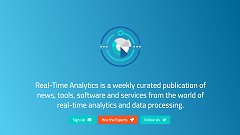Why Considering Users First Is Integral to Successful SEO
Your business, whatever sector you work in, would not exist without your customers. From the smallest one person businesses, to the largest multinationals, whatever sector you work in, your business relies on customers will to pay for your product or service.
This is why, when it comes to Search Engine Optimisation (SEO), it is vitally important that businesses consider their users/customers/clients first.
When I'm considering how best to improve a website's search ranking, I'll be asking some or all of the following questions:
- What does this company do?
- How does this company fulfill a need?
- What search terms would a potential customer be using to find equivelant goods or services?
- Is there a niche we can saturate in this market?
- What questions are we answering?
The answers to these questions should start to help us forumlate a plan for the structure of the website and the content we produce to inhabit it.
There is little benefit in producing content which does not answer a potential customer's question.
When people Google things, they're really asking questions, whether their search term is formulated that way or not. Consider the data from Google's Year in Search 2018 for the United Kingdom:
https://trends.google.com/tren...
There are two sections which leap out at me - 'What is...?' and 'How to...?'. These are direct questions with specific answers. Answers which will be provided by website content. And while the other sections may not be explicit questions, when someone Google's 'World Cup', they're purpose is more like 'Tell me about the World Cup', 'What is the World Cup?', 'Who is playing in the World Cup?' or similar. If our website content can answer someone's question Google will recognise this and give it a good ranking. Consider this search query:
'How do I create a sitemap in Perch?'
Here are the results in Google:
https://www.google.com/search?client=firefox-b-d&q=how+do+I+create+a+sitemap+in+Perch
At time of writing, my blog post which answers this specific question is feartured at the very top of the list, including an image from the post and excerpts from the article. This blog post answers a very specific question, but it is something which users of the Perch CMS need to know.
New Project, New Sector
I'm working on a new project, helping my brother's company Spicule create an innovative interface for a service called JUJU Charms. The interface will be built using React.JS and become part of a system which enables the simple provisioning of complex server and software systems which facilitate real-time data analysis and processing.
As part of our kick-off meeting last week we discussed Spicule's approach to SEO, optimisation and the fact that their website gets minimal traffic. I offered to make some suggestions. Immediately I noticed a distinct lack of question-answering content on their blog, and throughout the whole site. In a sense, whilst much of their content is valid and useful, it's just too vague for Google to make good sense of it and want to offer it as an answer to someones query.
I'll be working with Spicule over the coming months to improve their search presence by helping them understans what it is their potential customers are asking, and by providing quality content which aims to provide the answers. Part of will include creating new pages targetting specific sectors, such as science and research. These pages will aim to answer questions such as 'how can big data and real-time analysis benefit science and research?' This is addition to refreshing and optimising their existing content, such as 'What is Druid?' - a page which explains the purpose and functionality of the Apache Druid database.
Alongside working on Spicule's own website, I've setup a new site called realtimeanalytics.io. The purpose of this site (and it's associated Twitter account, @realtime_io) is to provide a central hub through which to promote articles and content about big data, analytics, Apache Druid and other similar concepts, tools and services. Whilst realtimeanalytics.io remains independent from Spicule, my aim is to use it to funnel traffic towards Spicule in a way which avoids visitors feeling they're being 'sold' to.
I'll report back on progress as we work out what works, and what doesn't! There is plenty to go at - lots of avenues for optimisation, but because of the nature of the internet effective SEO is always a moving target.
